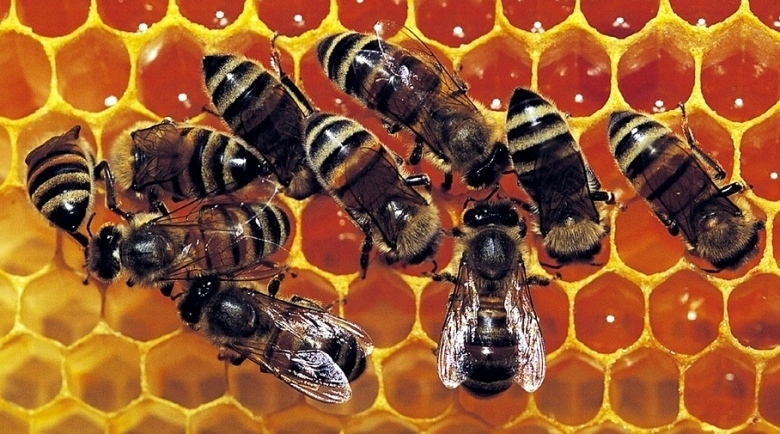
The most extensive study to date on neonicotinoid pesticides concludes that they harm both honeybees and wild bees. Researchers said that exposure to the chemicals left honeybee hives less likely to survive over winter, while bumblebees and solitary bees produced fewer queens.
The study spanned 2,000 hectares across the UK, Germany and Hungary and was set up to establish the "real-world" impacts of the pesticides.
Neonicotinoids were placed under a temporary ban in Europe in 2013 after concerns about their impact on bees. The European Commission told the BBC that it intends to put forward a new proposal to further restrict the use of the chemicals.
Prof Richard Pywell, from the Centre for Ecology and Hydrology in Oxfordshire, who carried out the research, told BBC News: "Our findings are a cause for serious concern.
"We’ve shown for the first time negative effects of neonicotinoid-coated seed dressings on honeybees and we’ve also shown similar negative effects on wild bees.
"This is important because many crops globally are insect pollinated and without pollinators we would struggle to produce some foods."
However, Bayer, a major producer of neonicotinoids which part-funded the study, said the findings were inconclusive and that it remained convinced the pesticides were not bad for bees.
